Chukwuemeka Pius Ezeife, Anambra State governor from January 1992 to November 1993 who died last month at 86, hauled himself up by the bootstraps and became an embodiment of progress. He took to apprentice trading on leaving primary school owing to a paucity of funds. Yet, before anyone knew it, he had obtained a doctorate in economics from Harvard, becoming a lecturer at Makerere University in Uganda. At the end of the Nigerian Civil War in 1970, he rejoined the federal civil service, retiring as a permanent secretary. He then dived straight into business and left a footprint in no time. He also rose rapidly in politics, as he became the Social Democratic Party (SDP) governor after a series of gruesome fights. His life was marked by grit, resilience, simplicity, and an unwavering commitment to the public good.
READ ALSO: Accolades As ex-Anambra Governor, Obiano, Clocks 68
No sooner he emerged governor than I was requested to join his Information Advisory Committee headed by Pita Ejiofor, a prolific author and management professor who had served as the Commissioner for Industry, Trade and Commerce in former Anambra State and was to become, years later, the Nnamdi Azikiwe University vice-chancellor. The recommendation came through Ezeife’s press secretary, Okey Ifionu, a suave journalist and natural public relations practitioner who is now a senior cleric in the Anglican Church in Lagos. For some reasons, I was the only professional journalist on the committee which was dominated by bureaucrats. Much as I was prolific in communicating the government development agenda to the public, I was internally critical of the governor’s attitude and approach to practical communication matters.
In one of the first meetings between Governor Ezeife and the Information Advisory Committee, I lauded him for developing the Think Home policy. Still, I observed that his disposition to public communication would impede the policy’s successful implementation. I asked him pointedly: “If investors and other stakeholders are not well informed about the merits of this policy and provided with compelling reasons why they should stake their future in our dear state through organs of public communication like the press and roadshows and conferences, how do you hope to deliver this beautiful vision?”
Not a man to give in easily to an argument, Ezeife retorted that I was advising him to turn Anambra State into a North Korea whereas he had plans to turn it into a South Korea! North Korea, under a family autocracy, was relentlessly sending communist propaganda material to not just its people but across the globe while South Korea was exporting ships, electronics, cars, etc, to the world. It was a lively debate between the governor and myself for the next 30 minutes. When the meeting receded, the governor’s Special Assistant on Information, Ben Obiatuegwu, a well-groomed writer and former chief executive of the state-owned newspaper who was a Reuters Fellow at Oxford University, and Press Secretary Ifionu joined members of the Information Advisory Committee to thank me for what they considered an impressive presentation of the communication strategy case.
The governor, smiling broadly and laughing heartily throughout the back-and-forth conversation, was perhaps impressed. The relationship between us blossomed rapidly after this encounter. Following another meeting of the Information Advisory Committee, he and I had a private meeting on the ongoing SDP primary elections. There were optics that Chuba Okadigbo, a popular academic and erstwhile President Shehu Shagari’s Special Adviser on Political Affairs who was running for the SDP senatorial nomination, was having difficulties owing to insufficient funds. His main opponent, Mike Okechukwu Areh, with a doctorate in Nuclear Pharmacy, was rumored to be campaigning with a lot of money. Many prominent Nigerians were worried. Onwuka Kalu, the chief executive of Onwuka Hi-Tek, was calling regularly to obtain reports on Okadigbo’s performance. “Ojo Maduekwe and Chuba Okadigbo,” he said to me repeatedly, “are two persons who would articulate and defend Igbo interests in the Senate. I will do my best to assist Ojo in Abia State. Please, talk to Dr Ezeife in strong terms.”
The governor listened calmly as I made a case for Okadigbo. I expected him, as he was wont, to address each point, but he rather surprisingly said solemnly: “What’s the assurance that Dr Areh’s first act in the Senate won’t be to demand that Onitsha be included in the proposed Anioma State?”. He paused and then threw in the killer punch: “Chuba is our candidate. Have no fears”. Right there he called the state SDP chairman, Goddy Madueke, and the secretary, Chukwunonso Ibeneme, to come over. Two days later, a relieved nation heard on the 4.00 pm Network News Service of Radio Nigeria that Okadigbo had become the SDP senatorial candidate. Much as Okadigbo and I had a close relationship, I never narrated to him this meeting with Ezeife.
On August 26, 1993, I met Ezeife and advised that the government honour Anambra winners of the Nigerian National Order of Merit (NNOM), Nigeria’s highest honour for intellectual and artistic attainment as part of the effort to recalibrate our value system and promote education as the way of the future. Anambra was then competing with Ekiti over the state with the highest number of NNOM laureates. Though he had recorded his broadcast to mark the state’s second anniversary the next day, the governor recalled the tape to include the honour to the state’s brilliant indigenes in the address.
Ezeife and I didn’t see again till about November because I had withdrawn from the committee due to the behaviour of an aide to Ezeife’s well-trusted private secretary. When he eventually saw me at a meeting he was holding with the Anambra community in Abuja at the Nicon Hilton Hotel, he discreetly asked his aide de camp, Chris Ezike, who was to retire as an Assistant Inspector General of Police, to release all his office, residential and direct telephone numbers to me. After the meeting, I went to see him in his suite, he said to me: “Identify any three posts you want in government, except the Commissioner for Education; that is for the candidate of the Catholic Church. I am now seeing the wisdom in your advocacy for effective communication”. He was worried about the public perception of his government, despite building such things as the Udoka Housing Estate in Awka and repeated explanations that he would start aggressive development in the third year of his administration that would make it unnecessary for him to campaign energetically for reelection.
I was already working as the Special Assistant to Bart Nnaji, the Minister of Science and Technology, a particularly close friend, so I turned down the offer. Ezeife’s love for Anambra showed once again. “Please, bring the minister to Awka as soon as you can. He can help us with the electronics agency we are building to make Anambra the hub of Nigeria’s industrial revolution.” As I was departing the suite, he joked: “Don’t fail, as you did in the case of Professor Oliver Mobisson, the MIT-trained computer genius whom you couldn’t persuade to leave the Enugu State University of Technology to join Nnamdi Azikwe University in Awka. Mobisson’s brilliance was already known in Boston when I was at Harvard.”
Ezeife was over the moon to see Nnaji in Awka within days and assembled the cabinet to attend a reception for the minister where he spoke passionately about the electronics development agency, now a federal institute. Little did we know that Ezeife and Nnaji would be out of government the next week following Sani Abacha’s emergence as Nigeria’s military ruler.
Ezeife had no money to rent a house, so he and his family moved to his private office on Awolowo Road in Ikoyi, using the small place as a residence and office. His situation is reminiscent of the case of Ukpabi Asika who, after nine years as the East Central State administrator, squatted in John Adeleke’s residence at 80 or 81 Norman Williams Street, Southwest Ikoyi. Ezife turned to exporting cash crops like ginger and cashew nuts to Asia, but it faced many challenges. Yet, when I strolled into his office and casually mentioned that I was going to officially announce my intention to marry a girl from the Nzeribe family in Uli with just a bottle of spirit, Ezeife ran around to provide the money for the drink, despite my gentle protest. He could find only N3,000 cash and gave me two-thirds of it. I used N1,500 from it to purchase a bottle of St Remy.
The following year, I introduced Julie to him at the wedding of Bufo Nwike, a younger brother of his loyal deputy when he was governor, Chudi Nwike, a medical doctor. Ezeife showed excitement at her beauty and physique. I mischievously quipped in the presence of Okadigbo and the former deputy governor: “I know what you cherish!”. Okadigbo, an exceedingly humorous person, added for effect: “It is forbidden that a titled man should eat only one kind of soup every day!” Ezeife, lifting his not-so-huge frame, responded in agreement, robustly shaking our hands. He was such a simple-hearted person who harboured no pretenses.
May God welcome his noble soul into paradise.
Adinuba was the Anambra State Commissioner for Information & Public Enlightenment (2018-2022).

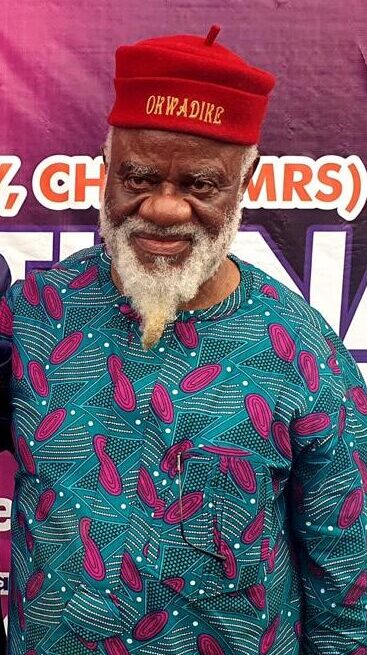




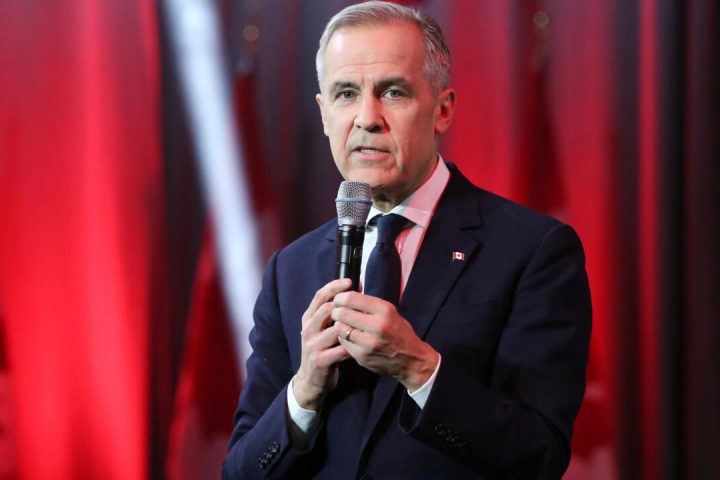







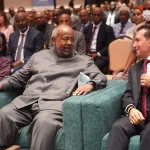
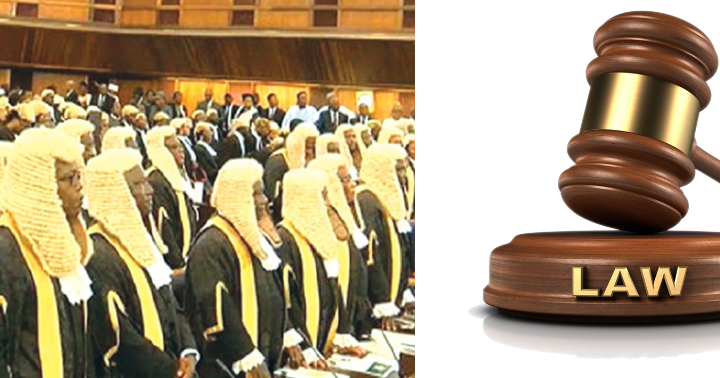
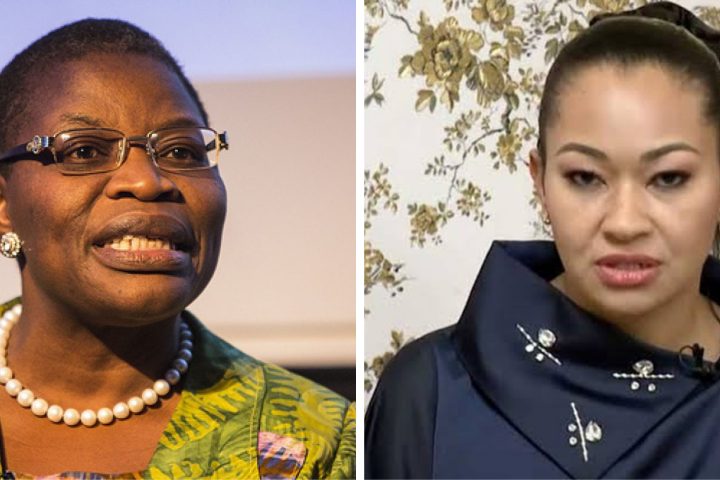
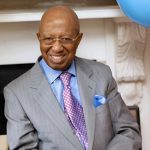
Follow Us